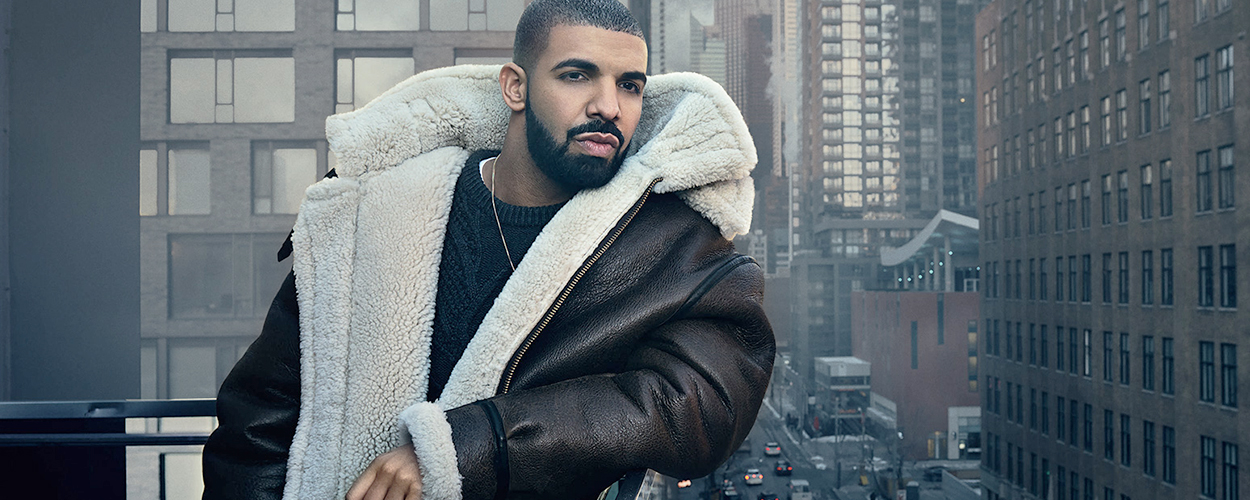This website uses cookies so that we can provide you with the best user experience possible. Cookie information is stored in your browser and performs functions such as recognising you when you return to our website and helping our team to understand which sections of the website you find most interesting and useful.
Artist News Legal Top Stories
US appeals court rules that Drake’s Jimmy Smith sample is definitely fair use
By Chris Cooke | Published on Tuesday 4 February 2020

The Second Circuit appeals court in the US has upheld a lower court ruling regarding a sample dispute over Drake’s 2013 track ‘Pound Cake’. The higher court confirms that Drake’s lengthy sample of a recording by jazz musician Jimmy Smith is fair use, and therefore the use of that sampled audio without licence does not constitute copyright infringement.
The recording that was sampled was a short spoken word bit called the ‘Jimmy Smith Rap’ that appears on his 1982 album ‘Off The Top’. In it the musician introduces that record and, in the process, declares that “jazz is the only real music that’s going to last, all that other bullshit is here today and gone tomorrow, but jazz is, was and always will be”.
Drake’s label did actually get a licence to sample the Smith recording. But after ‘Pound Cake’ was released the jazz musician’s estate went legal on the basis that no licence had been sought for the literary work contained within that recording, ie the separate copyright in the words. It was then that Team Drake pleaded fair use.
Most sample cases focus on the recording rights rather than the accompanying musical or lyrical rights. Mainly because the samples are usually very short, and it’s hard to argue copyright would protect a couple of beats or words in isolation. But with the recording – although the US courts haven’t been entirely consistent on this – it is generally agreed even a tiny snippet is usually protected by copyright.
But this case was different. Partly because the recording had been licensed so wasn’t part of the dispute. But also because Drake sampled more than 30 seconds of Smith’s track, so there was no debate over whether or not there was enough substance for the sampled material to have copyright protection.
So it all centred on fair use, the slightly nebulous concept under American copyright law that says that, in certain circumstances, people can make use of copyright works without the copyright owner’s permission.
In upholding the lower court ruling in Drake’s favour, judges in the Second Circuit considered the four factors that US copyright rules state can make an unlicensed use of copyright work fair use. They reckon that three of those factors support the claim that Drake’s use of the Smith sample was fair, though the first factor is probably most important and certainly most interesting.
Basically, the judges conclude that Drake’s use of Smith’s words was fair use because he is countering the opinions the jazz musician aired on his 1982 record.
In the words of the Second Circuit: “The message of the ‘Jimmy Smith Rap’ is one about the supremacy of jazz to the derogation of other types of music, which – unlike jazz – will not last. On the other hand, ‘Pound Cake’ sends a counter message – that it is not jazz music that reigns supreme, but rather all ‘real music’, regardless of genre”.
The court goes on: “‘Pound Cake’ criticises the jazz-elitism that the ‘Jimmy Smith Rap’ espouses. By doing so, it uses the copyrighted work for ‘a purpose, or imbues it with a character, different from that for which it was created'”. Which, the judges reckon, is sufficient to constitute fair use.
Most other copyright systems around the world don’t have a get out quite as wide-ranging as the US concept of fair use, although there are still scenarios when copyright works can be used without licence, what are usually called copyright exceptions.
A common exception is for critical analysis, where you quote someone else’s work in order to critique it. Given the Second Circuit’s comments, it seems likely Drake’s team could probably have relied on that copyright exception even in jurisdictions without the lovely fuzzy concept of fair use.
Concluding, the Second Circuit adds: “We have considered the remainder of appellants’ arguments and find them to be without merit. Accordingly, the order of the district court hereby is affirmed”.





